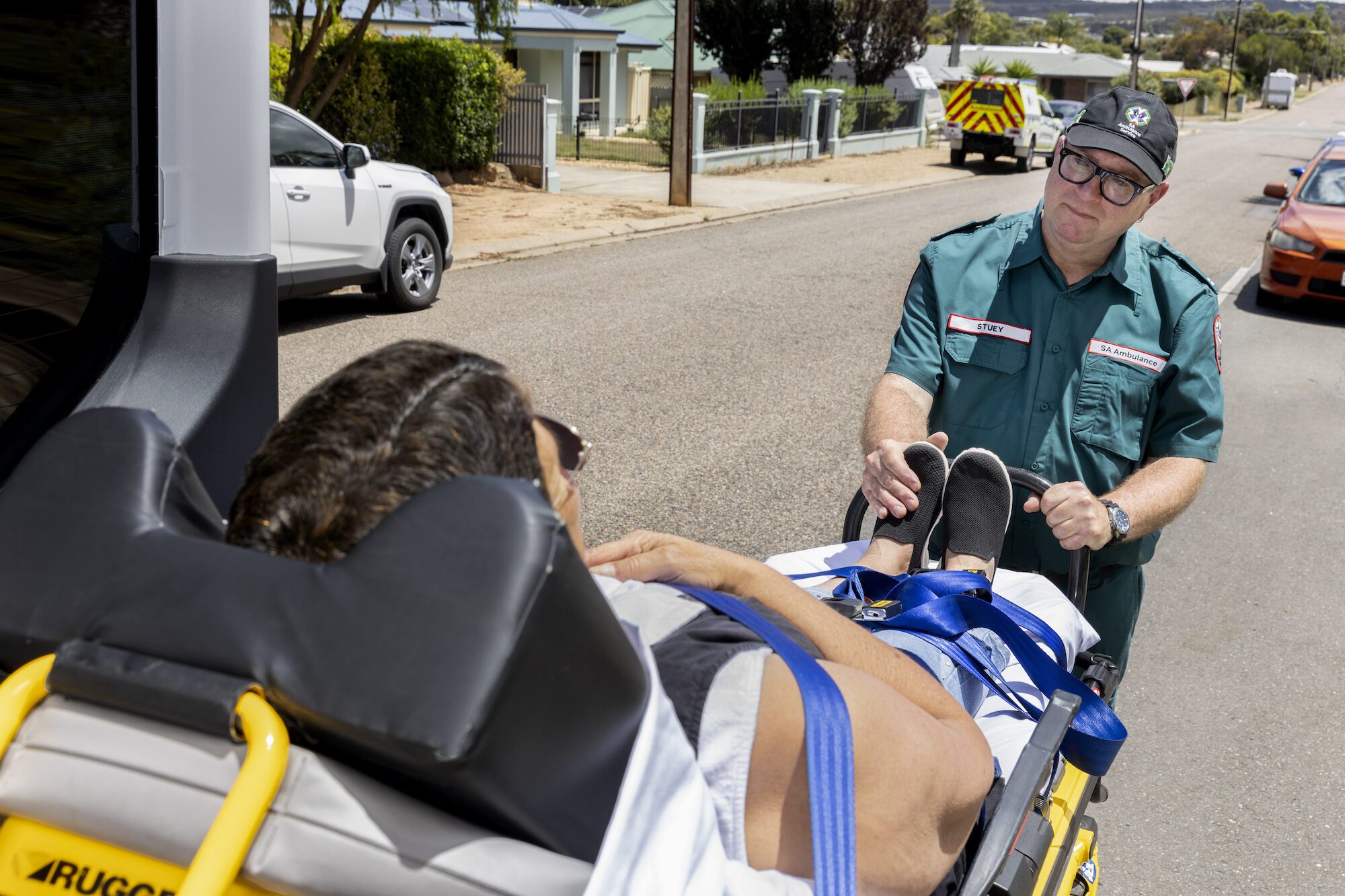
When Stuart Bourne’s pager goes off during a shift at the Kapunda Ambulance Station in the Barossa, he and his co-volunteer have 90 seconds to be on the road.
As details of the call-out appear on the monitor in the emergency ambulance, there’s a lot going through his head.
“There is always trepidation,” he says.
“Mine comes from being quite new. I don’t have years of experience, but you are partnered with someone who does. You’ve got to be prepared for pretty much anything. Our job is to make it that little bit easier for people.”
Stuart is one of Australia’s best winemakers, working for Soul Growers in Tanunda, but for a couple of 10-hour shifts a month he volunteers for the SA Ambulance Service.
If you live outside the Adelaide metropolitan area and some of the bigger towns like Port Lincoln and Mount Gambier – where ambulance crews are paid paramedics – there is a good chance the crews in the country are volunteers.
South Australia has almost 1,200 of them who come from all walks of life – farmers, real estate agents, shop keepers and retired nurses.
Now Stuart is one of them. He says they all have one thing in common. “A genuine love of our community,” says Stuart, who is an ambassador for SA Ambulance Service in their search for volunteers.
“We all have a desire to put back into the community and care for others.
“I mean, it’s where I live. Community for me means walking down the main street and waving to people and saying g’day, but it also means giving back. Karma exists in regional Australia. Give and you shall receive.
“Country towns are the heart and soul of the wine industry. It is in our interests to look after them. We’re social creatures, we don’t do isolation well – it can be quite a concern in country Australia. Volunteering gives you a chance to make connections in your community that you otherwise might not make through your profession.”
Stuart has been a volunteer trainer for the Angaston Football Club for years, strapping ankles and shoulders and providing moral support. “I’m too old and slow to play footy now, so it’s my way of staying connected to the community,” he says.
A few years ago the club doctor asked Stuart if he had done anything with his first degree from Adelaide University – Pharmacology – suggesting he would make a good volunteer ambo.
“I never thought it would be for me,” says Stuart, “but I love it. I love the people I work with and the people who have trained me.
“A lot of people don’t know that when the red and blue lights turn up and the people in green jump out and start treating people, they’re volunteers. They’re just ordinary people doing extraordinary things.”
Soul Growers gives Stuart an RDO a month to be on duty. “The business supports the community by paying my wage for the day,” he says.
“I think there is a corporate responsibility for small businesses, whether in the wine industry or not, to give up a bit of time for your community. It’s good for any country town knowing there is an ambo sitting in a shed down the road with a few volunteers giving up their time so that if something does happen, someone will be there fairly quickly.”
Stuart is blending a Barossa Shiraz which he thinks is pretty good.
“It comes from a bunch of growers that I know and love,” he says.
“A few people are going to go, ‘Bourney, that’s a good drink’. That makes you feel good as a winemaker, but it’s a different feeling of satisfaction to this whole idea of being a voluntary ambo.
“I’m so proud to wear that green uniform and stand next to almost 1,200 other South Australians in regional communities.”
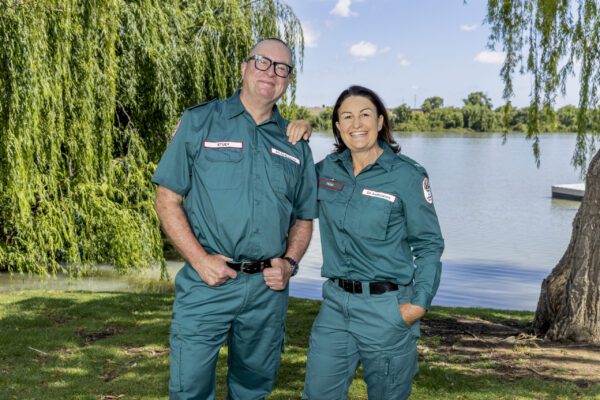
He says volunteer ambos are well supported within the organisation, especially after a full-on shift. “There will be some days when you don’t end up with the result you want,” Stuart says.
“That’s the nature of it. I signed up to that. There will be times when I will do my best and it won’t be enough. Someone told me they couldn’t do it because they couldn’t cope with a tragedy. It does take a certain kind of person.
“If you are having a rough shift, one of our peers rings soon afterwards and says ‘hey Bourney, how are you feeling?’ They never leave us on our own. They are incredibly kind, supportive and understanding. We’re empathetic and caring to our patients, and internally we’re empathetic and caring to ourselves.”
Stuart has been moved by the human spirit. “It’s been quite humbling to see what the human spirit can be like in times of crisis,” he says.
“The resilience of people, especially under times of duress, is incredible. Every single time we walk in the door carrying a kit bag, I feel the change in the air. There’s a calmness that descends upon everyone as they look up and go ‘thank goodness the ambos are here’.
“You cannot describe that feeling. Inside you might have inner turmoil, but you hold your calm and do what you have to do. It brings a sense of order to what could otherwise be quite a chaotic set of circumstances.
“One day in a workshop the trainer said you’re not a superhero, you don’t walk in the door and rise to the occasion, you descend to your level of training.
“It kicks in and you do what you have to do. During this tough time in the industry we all need the occasional human interest story to bring a bit of light to us all.”
Driving home after a shift, Stuart often reflects on the fulfilment of his community work.
“You think about the fact that you just had a massive positive impact on somebody when they were having the worst day of their life,” he says.
“You cannot beat that feeling. There are plenty of ways to volunteer in the community. I just happened to find this one which I love. I’ve found my people.
“You know what I’m disappointed about? That I didn’t do it earlier.
“It has added so much to my life.”
• This article was first published in the May-June edition of WBM – Australia’s Wine Business Magazine. To subscribe click here.
Photo: Heidi Wolff.




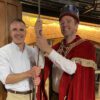



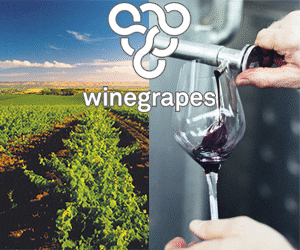
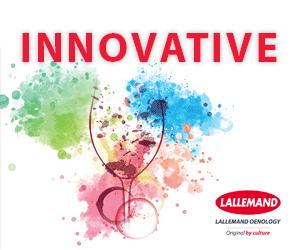
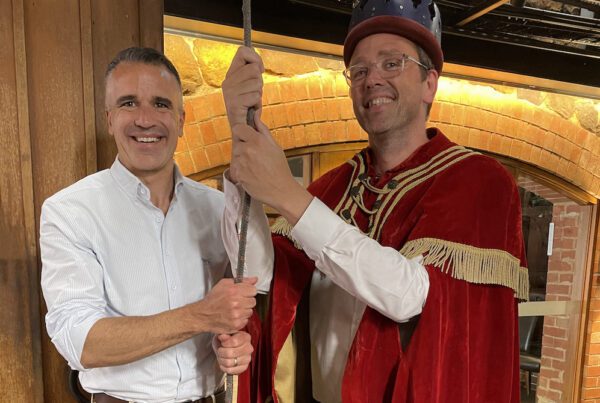
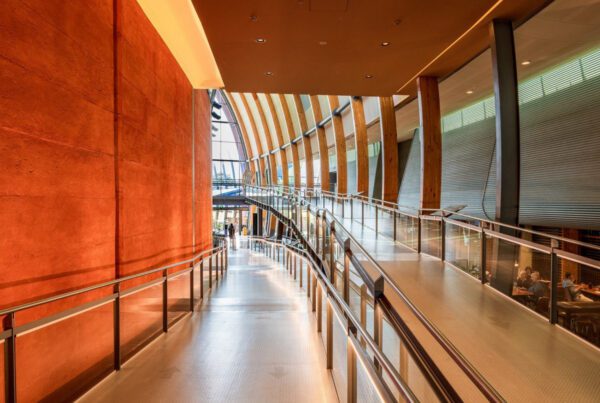
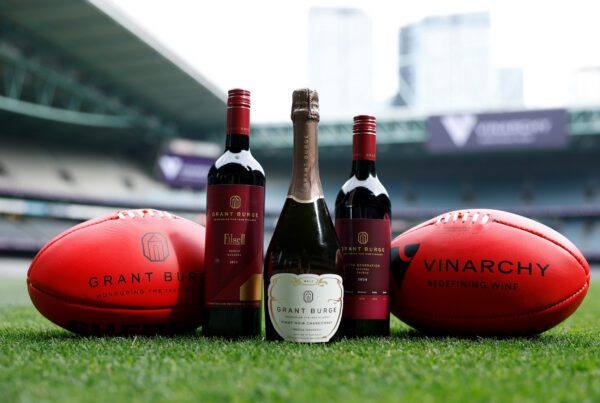
Recent Comments